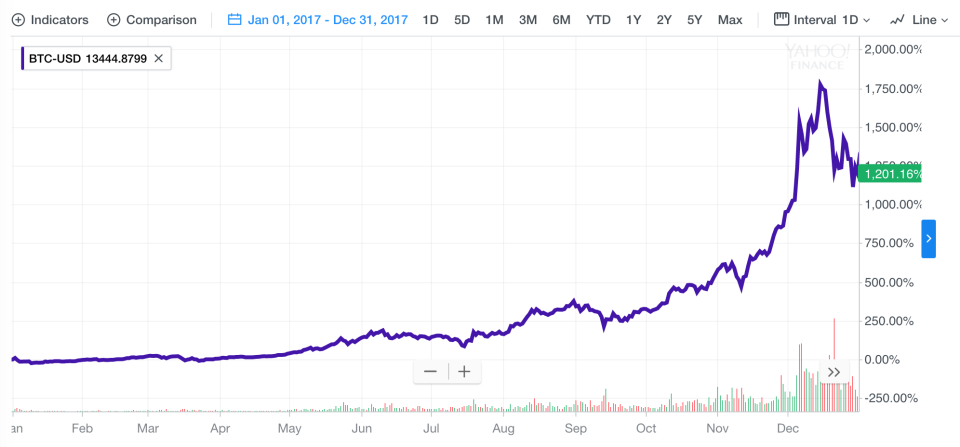How to report bitcoin income on your taxes
The price of bitcoin soared to an all-time high above $19,000 at the end of 2017, and if you sold your coins at the top, you might now be freaking out about how to deal with it on your taxes.
First of all, let’s step back: most cryptocurrency newbies who bought for the first time last year probably did not sell any. And if you bought bitcoin, but did not sell any bitcoin, there’s nothing to worry about, and nothing to bother disclosing on your taxes.
Another group of people may be those who bought toward the end of 2017 when price predictions were sky-high, then panicked and sold at a loss this year. If that’s you, your losses won’t matter until you do your 2018 taxes next year.
Now, back to the group that did sell bitcoin in 2017. The IRS first posted official guidance on cryptocurrency in 2014, and hasn’t changed its language since then. (The IRS uses the term “virtual currency,” which is already somewhat out of fashion, and the only specific virtual currency it names is bitcoin. You might reasonably assume the guidelines apply to any cryptocurrencies, like ethereum or litecoin, but maybe not, since the IRS also says, “No inference should be drawn with respect to virtual currencies not described in this notice.”)
The IRS classifies virtual currency as property, rather than as currency.
As a result, you should treat bitcoin just like stocks: you must disclose a capital gain (or loss) from the sale of bitcoin, based on what you paid for it initially.
This is simpler than it sounds. If you bought one whole BTC at a website like Coinbase when the price was $1,300, your cost basis was $1,300 plus whatever you paid in fees—call it $1,500 total. If you sold your bitcoin two months later when it was at $1,900, your gain was $400. The taxes you must pay on that gain depend on your income bracket, and on whether it was a long-term or short-term gain. You disclose gains from sales of capital assets on Form 8949.

Bitcoin miners have to disclose their gains too. The IRS (perhaps surprisingly) specifically mentions mining in a Q&A section in its 2014 notice: “Does a taxpayer who ‘mines’ virtual currency (for example, uses computer resources to validate Bitcoin transactions and maintain the public Bitcoin transaction ledger) realize gross income upon receipt of the virtual currency resulting from those activities? Yes, when a taxpayer successfully ‘mines’ virtual currency, the fair market value of the virtual currency as of the date of receipt is includible in gross income.”
What if you sold bitcoin at a loss? That, too, gets disclosed. You can deduct your losses—and then seek better financial advice on how long to hold your coins.
What if you were paid in bitcoin by an employer? That, too, has to be disclosed, but not as capital gains: that gets reported as wages on your W-2 form.

Now, with all that having been said, most people who did sell bitcoin and did have a gain are likely to simply not mention it in their tax filing—and it’s unclear whether they’ll get penalized. The IRS is still just beginning to figure out how to understand and deal with cryptocurrency, much less go after those who aren’t properly revealing how much they’ve made from selling it. (On the other hand, the IRS signaled it is ramping up its efforts when it demanded Coinbase hand over customer records for anyone who conducted more than $20,000 in transactions between 2013 and 2015.)
Accountants that Yahoo Finance spoke with generally said that while more clients than before are asking about bitcoin, they aren’t showing any big gains and the quandary is still a blip on their radars.
But that’s not meant to be advice. Hide your bitcoin gains from the IRS at your own risk. It’s safest to disclose.
—
Daniel Roberts covers bitcoin and blockchain at Yahoo Finance. Follow him on Twitter at @readDanwrite.
Read more:
Coinbase under fire for possible insider trading
Warning: An ICO is not like an IPO
Ripple CEO: ‘There’s a lot of FUD about XRP’
Blockchain CEO on ‘Just Hold’ mantra: ‘I don’t believe in that’

